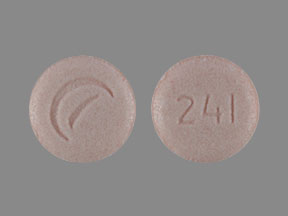
Clonidine ER Coupons & Savings Card – Discount Prices from $21.44
Generic for: Kapvay, Nexiclon xr, Onyda xr
My prescription
Edit
0.1MG, Clonidine ER (60 Tablet Extended Release 12 Hours)
Select pharmacy

CVS
$24.77
COUPON PRICE
Walmart
$21.44
COUPON PRICE
Walgreens
$24.78
COUPON PRICE
Albertsons
$29.61
COUPON PRICEClonidine ER savings card
Show this card to your pharmacist
Walmart
$21.44
BIN
ID
PCN
GRP
019876
LH873ED615
CHIPPO
LHX
Powered by
More prescriptions for hypertension
More prescriptions for hypertension
Price history for Onyda Xr (brand) & Clonidine ER (generic)
60 Tablet Extended Release 12 Hours, 0.1MG
Average retail price for Onyda Xr
Average retail price for Clonidine ER
Average SaveHealth price for Clonidine ER
Our price history data is based on aggregated prescription data collected from participating pharmacies in America. Our prescription data updates daily to reflect the latest price changes. If you notice a missing data point, it means there wasn't sufficient data available to generate a monetary value for that date.
We analyzed Clonidine ER prices for (0.1MG, 60 Tablet Extended Release 12 Hours) over the last 12 months. The average retail price was $39.10, while the average price using the SaveHealth discount card was $34.17. That's a savings of approximately 12.61% when using our Clonidine ER coupon.
Compared to the generic version, Onyda Xr had an average price of $286.75 over the same time period. With the SaveHealth savings card, Clonidine ER is 88.08% cheaper on average than Onyda Xr.
*Retail prices are based on pharmacy claims data, and may not be accurate when we don't have enough claims.
Clonidine ER dosage forms
Dosage Quantity Price from Per unit 0.1MG 60 Tablet Extended Release 12 Hours $21.44 $0.36 0.1MG 1 Tablet Extended Release 12 Hour $2.82 $2.82 0.1MG 30 Tablet Extended Release 12 Hours $11.97 $0.40 0.1MG 90 Tablet Extended Release 12 Hours $36.00 $0.40
| Dosage | Quantity | Price from | Per unit |
|---|---|---|---|
| 0.1MG | 60 Tablet Extended Release 12 Hours | $21.44 | $0.36 |
| 0.1MG | 1 Tablet Extended Release 12 Hour | $2.82 | $2.82 |
| 0.1MG | 30 Tablet Extended Release 12 Hours | $11.97 | $0.40 |
| 0.1MG | 90 Tablet Extended Release 12 Hours | $36.00 | $0.40 |
